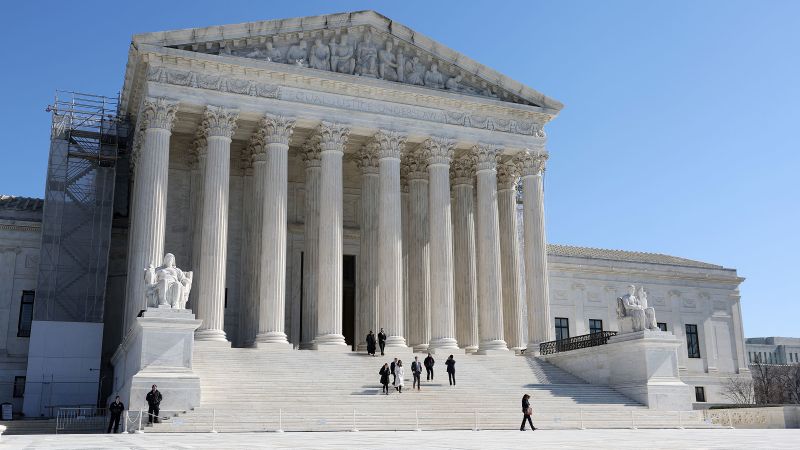The Supreme Court has chosen not to hear an appeal from parents in Michigan and Virginia who accused Attorney General Merrick Garland of suppressing their freedom of speech. This stems from a memo issued by Garland in 2021 addressing an increase in threats towards public school officials. Despite backlash and false claims stating that the Justice Department viewed parent protesters as “domestic terrorists,” lower courts have dismissed the parents’ claims as the memo did not introduce new regulations and was specifically aimed at threats of violence, not parental participation in school board meetings.
The parents from Loudoun County, Virginia, and Saline, Michigan, argued that the memo was a “rogue policy” intended to intimidate and silence parent protesters at school board meetings. They claimed that it forced parents to choose between giving up their right to speak up or potentially facing federal investigation. However, the Biden administration defended the memo, stating that the parents did not allege any government action taken against them.
The decision by the Supreme Court was made without comment, marking the latest episode in a larger campaign by some right-wing media and Republican politicians who accused the Justice Department of wanting to punish parents for attending or protesting at school board meetings. These tensions arose as school board meetings nationwide became heated over issues such as Covid-19 policies and curricula that were deemed critical of White people.
Overall, the Supreme Court’s refusal to hear the appeal supports the lower court’s ruling that the memo from Attorney General Garland did not infringe on the parents’ freedom of speech. Despite claims from the parents that the memo was designed to silence them, the courts found that it was focused primarily on threats of violence towards school officials. The Biden administration further emphasized that the parents had not faced any government action due to their participation in school board meetings, leading to the Supreme Court’s decision to not take up the case.
The memo from Attorney General Garland sparked controversy and false claims that the Justice Department was labeling parent protesters as “domestic terrorists.” While some right-wing media and Republican politicians have criticized the memo as an attempt to silence parental voices, the courts have ruled that it was not intended to stifle free speech but rather to address genuine threats of violence in schools. This development highlights the ongoing tensions surrounding issues such as Covid-19 policies and curriculum debates in school board meetings, with implications for how freedom of speech is navigated in these charged environments.
In conclusion, the Supreme Court’s decision not to hear the appeal regarding Attorney General Garland’s memo on threats towards public school officials reflects a larger national conversation surrounding free speech, parental involvement in school board meetings, and concerns about threats and intimidation. Despite accusations of silencing parent protesters, the courts have maintained that the memo was aimed at addressing violence, not stifling speech. This case represents a snapshot of the complex and contentious issues facing communities across the country regarding education policy, public discourse, and differing perspectives on critical issues in society.













